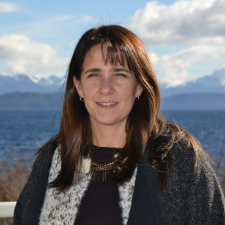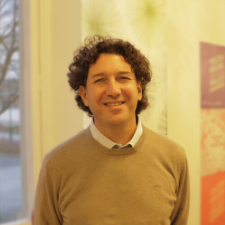Water Education for Sustainability and Global Citizenship



This instructor-led course offers an overview of the key sustainability concepts that may frame water education in schools more meaningfully, as well as a glimpse at a few successful models and tools from different scenarios.
Upcoming edition of this course
Two editions of this courses held in 2018 and 2019. An opening for 2020 will be announced soon. You are welcome to subscribe to our newsletter to receive information on upcoming online courses.
About this Course
This online course aims to create awareness and strengthen water education through increased knowledge on how to embed it into a more challenging and meaningful approach towards Education for Sustainability.
In the current global context of acknowledged environmental hazards of pressing importance, Education plays a key role in fostering sustainability. Yet educational systems may need to adjust their practices to embrace the full potential that Education for Sustainability offers. Content-laden encyclopedic teaching, subject-based curriculum designs and top-down school management approaches can be replaced by student-centered learning, interdisciplinary project-based curriculums and distributed leadership management schemes.
Thus, when a school dives into a wholistic approach towards sustainability, other forms of improvement of its teaching and management practices come in the wake, and bring forth paradigm shifts that make the school a scalable model for sustainable communities.
Guiding questions
By the end of the course participants will have explored alternative answers to these overarching issues:
- What should water education be about?
- Can such a complex concept as Sustainability be tackled in schools?
- What are the challenges facing Water Education for Sustainability?
- What teaching, learning and management approaches are more suitable to promote Sustainability?
- What examples / case studies / resources can be looked at for inspiration?
Modules
In each module participants will find valuable and updated readings, videos, suggested web sites, and experiences from the ground.
- Module 1: Making sense of sustainability at school
- Module 2: Focusing on Teaching Approaches
- Module 3: Planning for Water Education in Schools
- Module 4: Learning from other models
Target Audience
Participants representing various stakeholder groups from the entire water / education sector worldwide and who are interested in actively following the course, participate in all activities, and complete all modules to promote education for sustainability.
● school teachers, principles, managers, planners and policy makers,
● water capacity developers and researchers,
● anyone interested in exploring ways in which schools and educational systems can foster Water Education by means of an approach based on Sustainability.
As this an introductory course, participants are not expected to have previous knowledge on water education for sustainability.
Facilitators

Carla Sabbatini – Education for Sustainability Programme, Universidad de San Andres (Argentina)
Carla has worked as a teacher trainer for over 15 years, and her current research as a PhD candidate focuses on effective ways to foster Education for Sustainability. In the past she worked in the public administration sector for nearly a decade, and she also coordinated an environmental education programme for an NGO. Her area of expertise is Education, and more specifically, how to enhance schools’ effectiveness in promoting transformative learning towards sustainability.

Damasia Ezcurra – Education for Sustainability Programme, Universidad de San Andres (Argentina)
Bachelor of Communication and Specialist in Education with Management Orientation (UDESA). She served as Co-Director of the Education for Sustainability Programme (UDESA) and since 2012 was coordinator of several projects in the Green Schools Programme, including the development and implementation of the “Green Schools Award”. From the beginning of 2016 until 2018 she worked as the Special Projects Unit’s “Education for Sustainability” of the Ministry of Education of the Autonomous City of Buenos Aires. She took part in the elaboration of the “Curricular Framework of Environmental Education of the Autonomous City of Buenos Aires” and other publications as: “Towards a Green School – Strengthening our environmental bonds”, “Our plants and animals Alphabet”, “Agroecological school gardens” and “Teacher´s Creative Reuse Guide”.

Damian Indij, Cap-Net UNDP
Cap-Net´s Virtual Campus Coordinator. Damian has facilitated water-related courses in Latin America, Africa, Asia, and Europe, and participated as team member for the development of various training manuals. He is passionate for innovative learning approaches and partnership building for human and environmental development.
